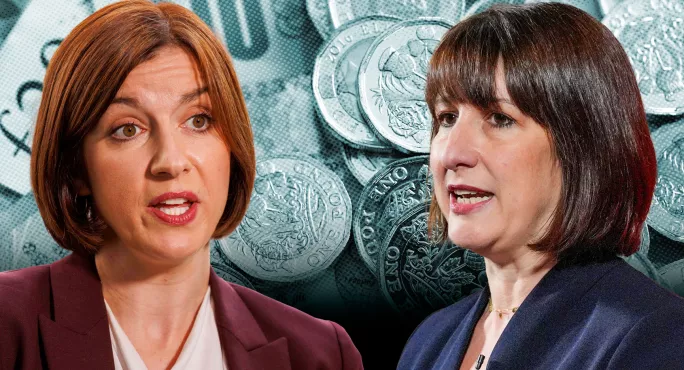Teachers to get 5.5% pay rise

Teachers and school leaders will get a 5.5 per cent pay rise for 2024-25, the Department for Education has announced.
The Labour government has decided that the rise should be applied to all pay grades after accepting the recommendations of the School Teachers’ Review Body (STRB).
In a written statement, education secretary Bridget Phillipson said the pay award will be fully funded. Schools will be provided with almost £1.1 billion to support them with the costs.
Teacher pay rise to be fully funded
This £1.1 billion will be delivered through a new Core Schools Budget Grant (CSBG), with £945 million for mainstream schools, £140 million for high needs, and £11 million for centrally employed teachers.
Performance-related pay requirements will also be removed from 2024-25. The requirement to make a pay decision after an appraisal will remain.
The 5.5 per cent rise is above inflation, which was at 2 per cent in the year to 17 July 2024.
The DfE will also provide £63 million for schools delivering post-16 education and £34 million for schools delivering early years provision - bringing the total additional funding to £1.2 billion.
Chancellor Rachel Reeves also announced that the previous government’s plans for a new qualification - the Advanced British Standard (ABS) - will be scrapped.
- Analysis: Full breakdown of the 2024-25 teacher pay scales
- Background: MAT chiefs warning over ‘unaffordable’ teacher pay rise
- Related: Schools ‘can’t plan budgets’ because of election pay delay
The DfE will now write to all the organisations that are statutorily consulted by the STRB to ask them to contribute to a government consultation on the pay recommendations and on a revised School teachers’ pay and conditions document and pay order.
Teaching union general secretaries welcomed the decision to accept the STRB’s recommendation and fully fund it, although the NEU’s Daniel Kebede said there was “still some way to go to restore what teachers and school leaders have lost since 2010 and we will expect this to be addressed in future pay rounds”.
Pay decision comes after school budget warnings
Today’s decision comes amid a worsening teacher recruitment and retention crisis, as well as warnings from school leaders over stretched budgets.
Earlier this month, reports emerged that the independent pay review body had recommended that teachers receive a 5.5 per cent pay rise.
Institute for Fiscal Studies (IFS) research fellow Luke Sibieta said last week that, based on IFS analysis, schools in England could afford a 1-2 per cent rise based on current funding levels.
He said going to 5.5 per cent would cost schools “at least £1 billion, probably more”.
Multi-academy trust chief executives previously warned that any pay rise above 2-3 per cent would be “unaffordable” for many trusts on current 2024-25 funding levels.
The former government delayed making a decision on teacher pay until after the election. It had recommended in its submission to the STRB that this year’s teacher pay award should return to a “more sustainable level”.
Education secretary Bridget Phillipson recently accused her predecessor Gillian Keegan of “a complete dereliction of duty” for failing to act on the independent pay review body’s recommendations.
Union to poll teachers over pay award
Teachers received a 6.5 per cent pay rise last year after extended industrial action by members of the NEU teaching union. The pay award for 2022-23 was 5 per cent.
The NEU has said it would conduct a “snap poll” of members on the government’s teacher pay award.
The poll will open on 21 September and close on 30 September, with members asked to follow the union’s recommendation on whether to accept or reject the pay award.
Meanwhile, school support staff have been offered a pay increase from April 2024 of at least £1,290 from local government employers - equating to 5.77 per cent for the lowest paid.
However, unions representing support staff have urged their members to reject the offer.
For the latest education news and analysis delivered directly to your inbox every weekday morning, sign up to the Tes Daily newsletter
You need a Tes subscription to read this article
Subscribe now to read this article and get other subscriber-only content:
- Unlimited access to all Tes magazine content
- Exclusive subscriber-only stories
- Award-winning email newsletters
Already a subscriber? Log in
You need a subscription to read this article
Subscribe now to read this article and get other subscriber-only content, including:
- Unlimited access to all Tes magazine content
- Exclusive subscriber-only stories
- Award-winning email newsletters
topics in this article



